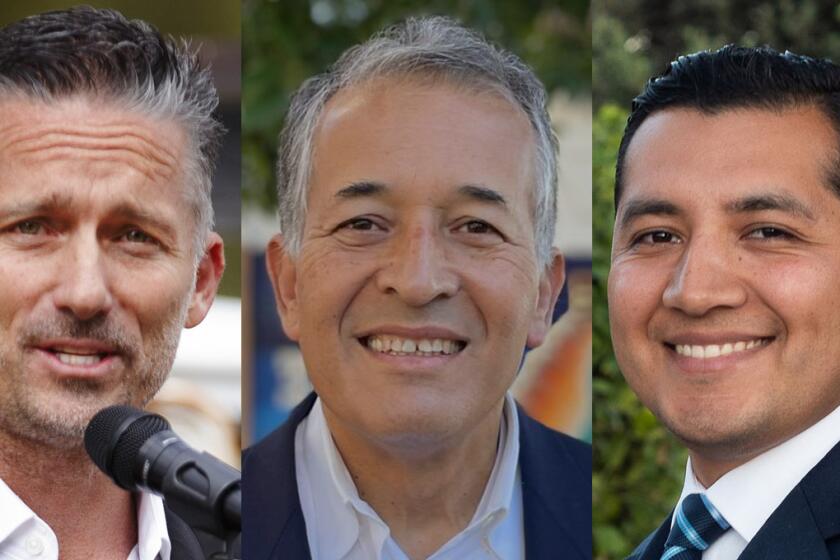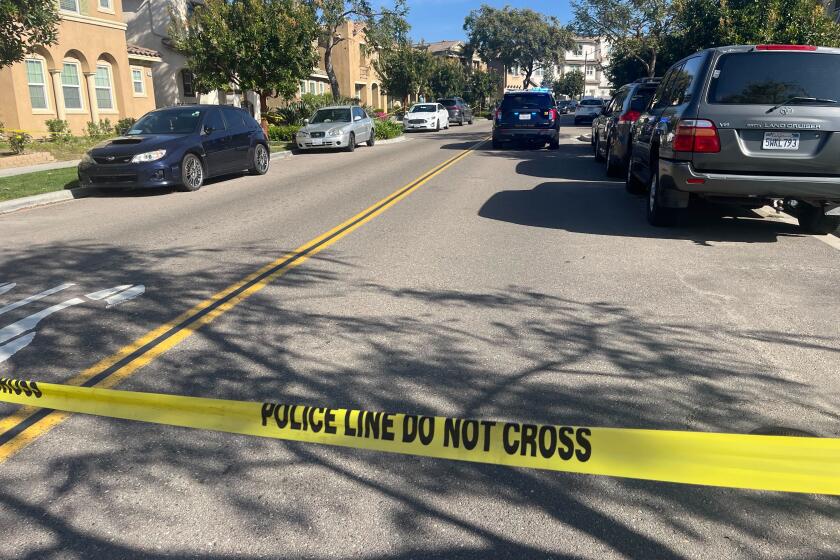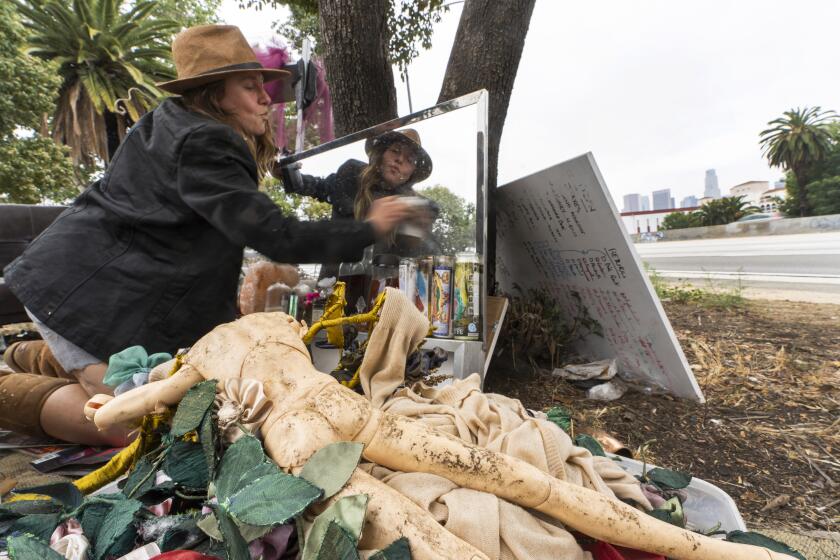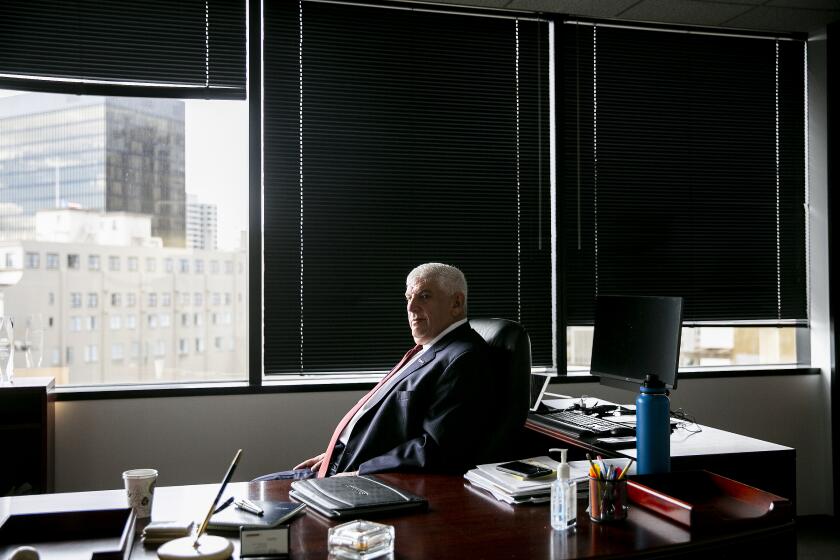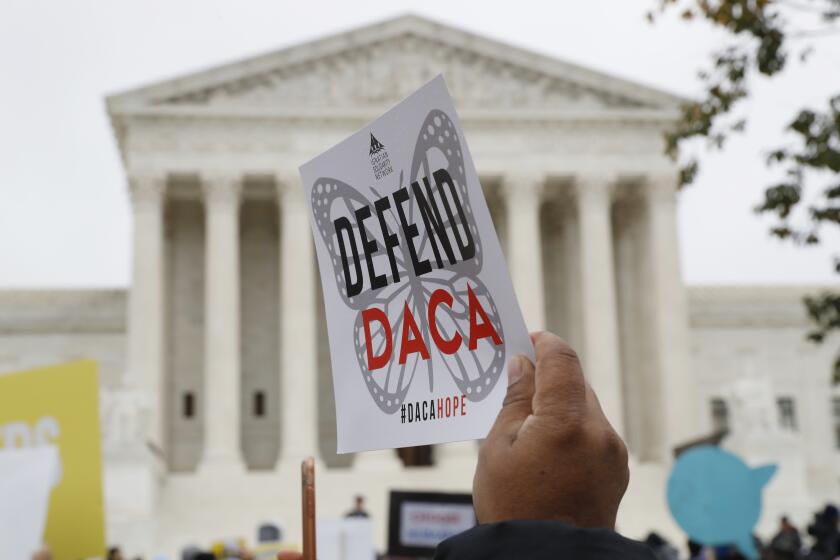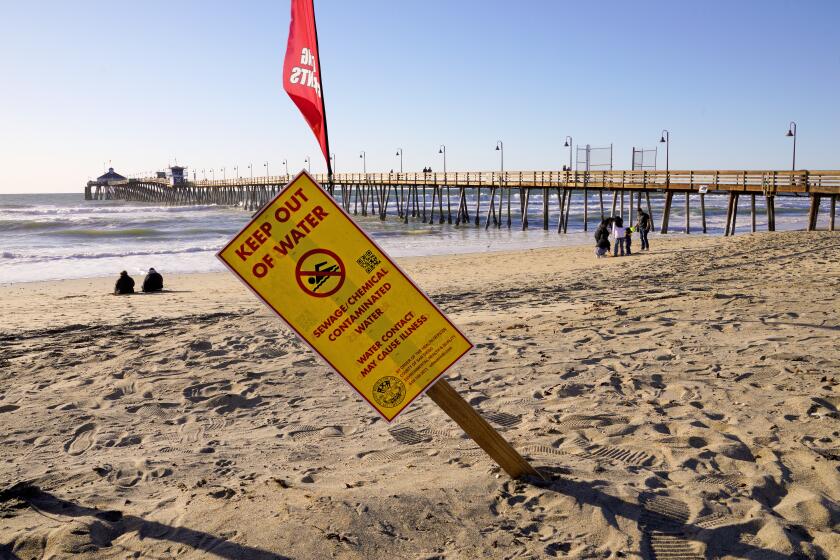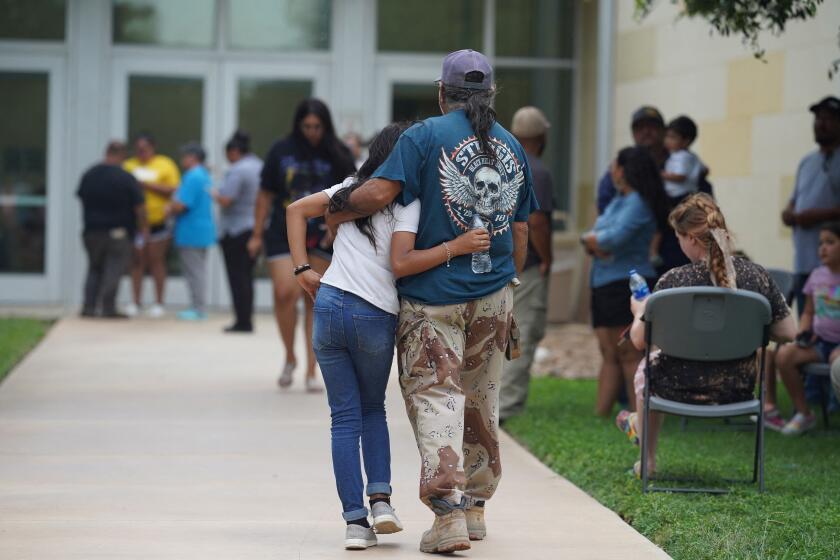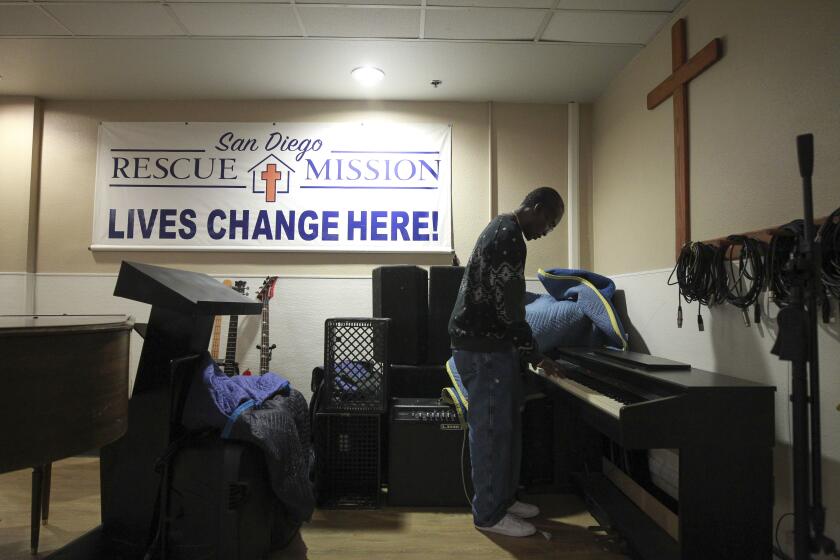2022 election: Q&A with Juan Vargas, 52nd Congressional District candidate
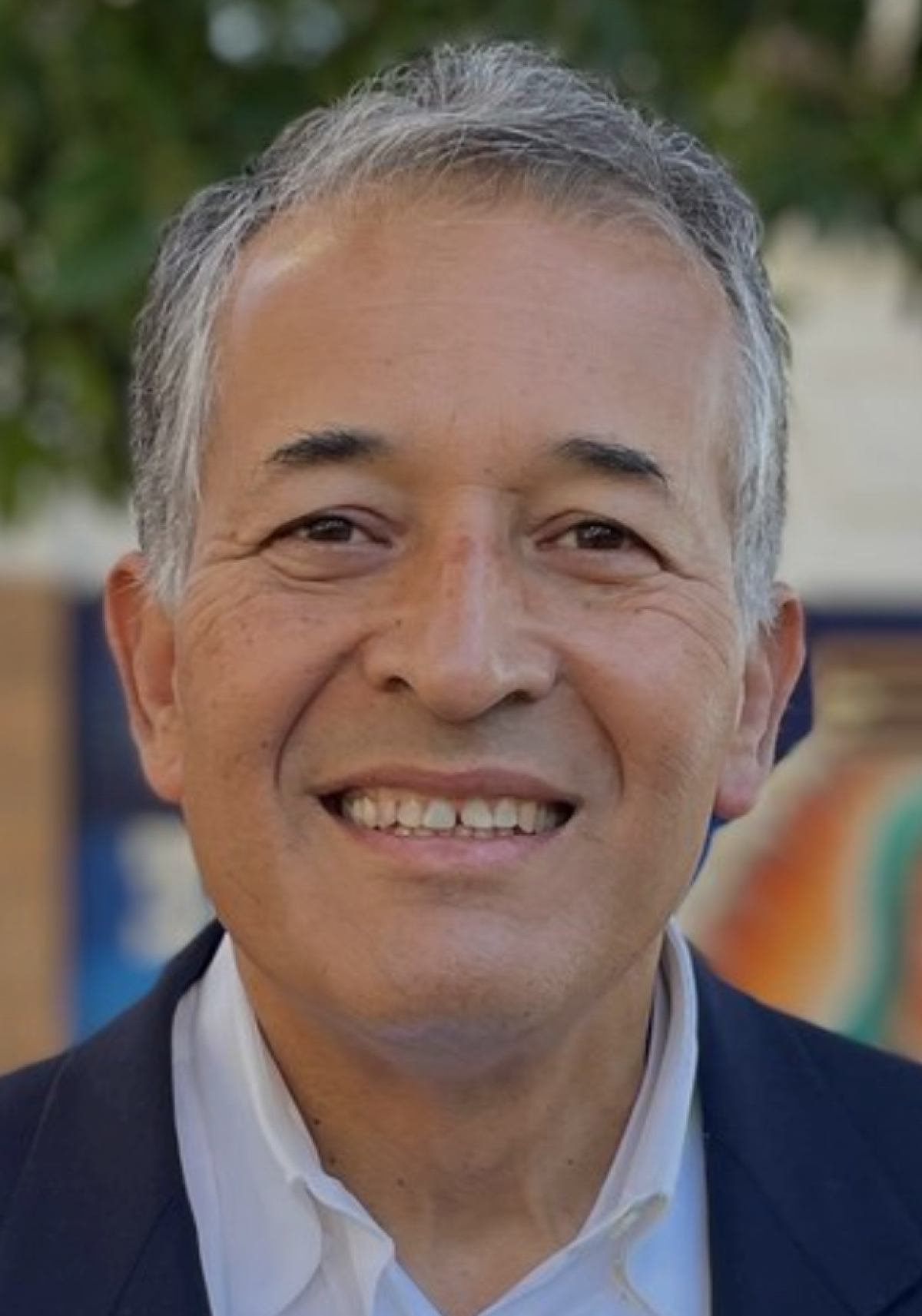
Juan Vargas is one of three candidates running for a seat in the 52nd Congressional District.
There are three candidates on the June 7 ballot in the campaign for the 52nd Congressional District that represents Chula Vista, Imperial Beach, National City and other parts of South San Diego County. Democratic Rep. Juan Vargas is being challenged by minister/business owner Tyler Geffeney, a Republican, and community engagement director Joaquin Vazquez, a Democrat. The top two vote-getters will advance to a Nov. 8 runoff. The San Diego Union-Tribune Editorial Board sent each candidate a 12-question survey, and is publishing their responses.
If you have comments or questions about the election or any of the candidates after reading this interview, please email Editorial and Opinion Director Matthew T. Hall at matthew.hall@sduniontribune.com.
Below are Juan Vargas’ responses and a link to the other responses.
Q: What will be your top domestic and international priority in Congress?
A: My top international priority will be working on the binational pollution problem of the Tijuana River Valley. My Democratic colleagues and I secured $300 million to start addressing this environmental challenge as it impacts many people throughout my district. These funds are a priority for the region, and President Joe Biden included language in his budget that supports the Environmental Protection Agency and International Boundary and Water Commission utilizing the $300 million to treat and prevent the transboundary flows.
On the domestic side, I am working on several housing initiatives to increase homeownership so people in my district can secure a piece of the American Dream — owning their own home.
Tyler Geffeney, Juan Vargas and Joaquín Vázquez are running for California’s 52nd Congressional District.
Q: What more can Congress do to combat climate change?
A: We must bring back the “Build Back Better” plan in smaller pieces and get them passed through Congress and to the president’s desk. Build Back Better has major investments in solar, wind and renewable energy sources, and battery storage that will fundamentally change the way Americans receive, store and use their power to help us meet our climate goals. We cannot give up on this important legislation. The science is clear: Climate change is real, it’s happening, and we all must work together to find solutions that secure a better tomorrow for our children and grandchildren.
Q: How do you assess the Biden administration’s response to the Russian invasion of Ukraine? What would you have done differently?
A: The Biden administration has helped unite the world against Russia’s unjust war of choice. I have supported the president every step of the way. Unlike the previous president, who said Russian President Vladimir Putin was a “genius” and “very savvy,” our current leader has called Putin for what he is: a violence-seeking, autocratic leader who challenges our interests around the world. President Joe Biden has struck the right balance between punishing Russia for its unprovoked actions while helping the Ukrainian people. I joined my colleagues in urging President Biden to accept Ukrainian refugees and will continue to work with the administration to deliver whatever humanitarian, economic and military aid is necessary to help Ukraine defeat Russia.
Q: U.S. immigration policy is complex. What two areas would you focus on to make changes to it?
A: America is a country born from immigrants. Congress must pass comprehensive immigration reform that modernizes our system while addressing historic and systemic injustices, helps solve our labor needs and injects humanity back into the process. The challenge of passing comprehensive immigration reform is real, but we cannot back down from this important fight.
Q: How should the United States handle the growing number of refugees and asylum seekers from Ukraine, Afghanistan, Central and South America and elsewhere?
A: Congress and the administration must invest more resources in the asylum process so cases can be adjudicated more quickly. The current backlog in the system can cause people to wait years for their cases to be heard — this must change. We must look at hiring retired judges and dramatically increasing the amount of humanitarian paroles we give people, especially those fleeing war. America is a nation of laws, and we have a system to process asylum cases, but it is overworked, underfunded and under-resourced. A significant change to our asylum-seeking process will have dramatic impacts.
Q: How would you try to improve border wait times for personal and commercial crossers at the U.S.-Mexico border?
A: I’ve been proud to champion the Otay Mesa East Port of Entry construction project. Once it’s completed in the next few years, it will reduce wait times for both personal and commercial border crossings. Our binational region will thrive on both sides of the border with this new port of entry.
Q: What specific steps does the nation need to take immediately and over time to ensure it’s better prepared to handle the next pandemic?
A: Let’s get it clear: We must always lead with science and ensure pandemics are never politicized. The COVID-19 pandemic taught us some hard lessons about our lack of pandemic preparedness. And we know it’s only a matter of time until the next pandemic strikes. I believe we should conduct a deep-dive evaluation into our COVID-19 response and work with federal agencies and partners, like the Centers for Disease Control and Prevention and National Institutes of Health, to understand what we got wrong this time around and better prepare for the future.
Q: What role, if any, should the government play in helping American workers obtain health insurance? If you support a government-related insurance plan, how would you finance it?
A: We must expand our efforts to enroll as many people as possible in the Affordable Care Act. The administration recently fixed the “family glitch,” which increased health care access to 1 million more Americans. I support Medicare for All, particularly in instances where private insurance and the Affordable Care Act cannot fill the gaps. We can fund a Medicare for All program with large subsidies from federal and state governments, following similar models from other industrialized nations. It is not a matter of if we can afford to finance this, it is a matter of having the will to do it and making it happen.
Q: How would you use your federal position to advance local issues, such as housing, homelessness and veterans affairs?
A: I am currently leading a housing initiative that increases public-private cooperation to increase housing affordability and home construction in San Diego and across our country. Additionally, I am collaborating with my federal partners to increase housing finance options for veterans and first-time homebuyers. Unfortunately, homelessness affects far too many in our region. I remain determined to work with my colleagues at the federal, state and local levels to allocate funds to address this pressing issue.
I’m proud to represent a community of veterans in Congress, and support Secretary Denis McDonough’s efforts to increase operating efficiencies within the Department of Veterans Affairs. We must increase access to health care and housing and create more resources to help our veterans who served our country. We must also support our deported veterans — they deserve to come back home to the country they bravely defended.
Q: How would you address economic pressures facing Americans with high inflation, gas prices and other costs and how would you address the massive national debt clouding America’s future?
A: When the pandemic hit two years ago, the top 20 integrated economies in the world shut down at the same time. Once vaccines were globally distributed, countries reopened and unleashed the unprecedented demand that’s driving high inflation. We’re still feeling the impact of this pandemic, and it will take time for prices to come back down. But we’re working at the federal level to address these issues: ramping up American production to reduce supply chain bottle necks, reducing our dependence on fossil fuels and transitioning to clean energy, and modernizing our infrastructure to move goods easily across our country. I support California’s $400 gas rebate — I believe it could be higher and other states should follow suit to help their communities get across this inflation bridge until supply chains can catch up with demand.
We can address the national debt by taxing the richest 0.5 percent of our population, increasing revenue to the federal government.
Q: How worried are you about how polarized the U.S. has become? Do you think our democracy is at risk?
A: Polarization is a real risk, and I’m optimistic we can address it together as Americans. We all have responsibilities to ensure that truth prevails over lies, and we must always remember that we have more in common than not. We must remember: a disagreement doesn’t mean we demonize someone, and plurality of thought is crucial for democracy to survive.
Putin and China are putting democracy at risk, and leaders who support their authoritarian efforts either at home or abroad put their own countries at risk. Russia has reminded the world what it could look like if democracy does not prevail, but I am confident our shared values will win. The war in Ukraine is a stark reminder that we didn’t bypass another world war for more than 75 years by chance. Our diplomatic efforts with countries across the world have kept democracy alive. We know democracy is not guaranteed, and we must never take it for granted.
Q: When have you shown independence from your political party on a significant issue?
A: I have disagreed with my party regarding the Joint Comprehensive Plan of Action agreement with Iran. I support peace in the Middle East and applaud former President Barack Obama and President Biden for working toward a solution with Iran. However, the leaders of Iran (not the Iranian people) are the largest supporters of state terrorism around the world, and they have proven they cannot be trusted.
Iran securing a nuclear weapon is a threat to our strategic democratic ally in the Middle East, Israel, and serves as a threat to all democratic nations around the world, including our own.
Get Weekend Opinion on Sundays and Reader Opinion on Mondays
Editorials, commentary and more delivered Sunday morning, and Reader Reaction on Mondays.
You may occasionally receive promotional content from the San Diego Union-Tribune.
